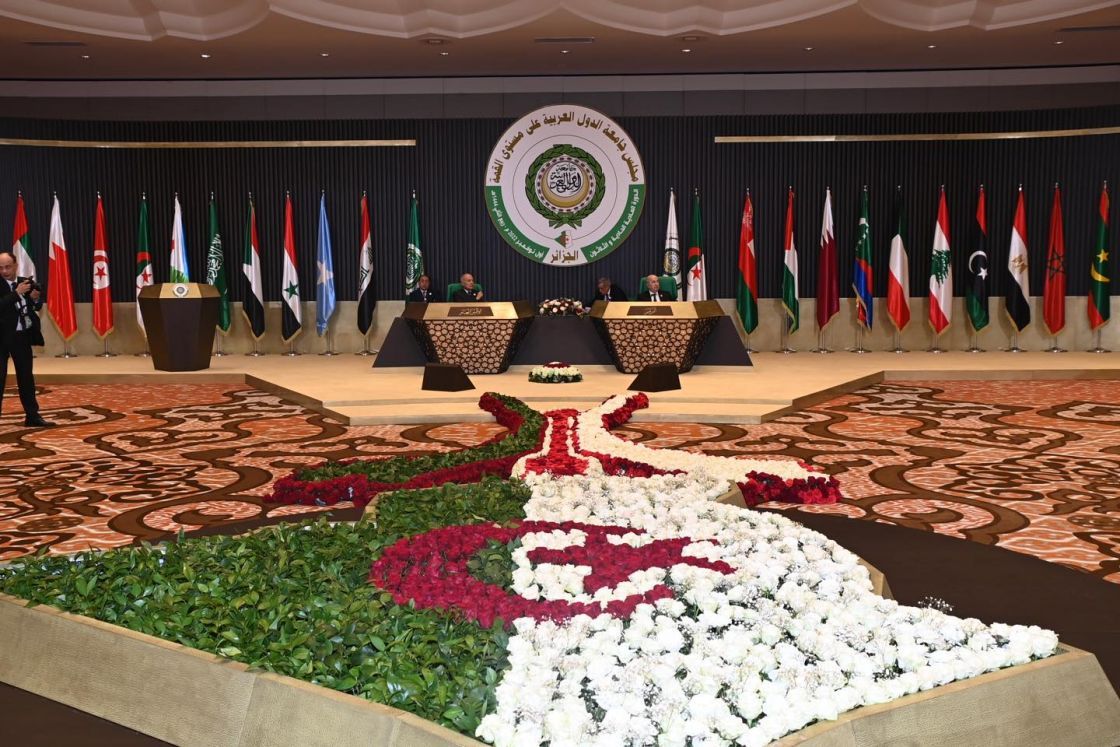- Editorials
- Posted
Kassioun Editorial 1095: The Syrian Crisis Needs an Arab Role
A few days ago, the 31st Arab Summit concluded in Algeria. The final communique of the summit included important indicators related to several international and Arab issues, including continuing to take a (practically positively) neutral position from the Ukrainian issue. These also included going back to the usual official positions on the Palestinian cause, which could be understood not only due to the effect of the prominent and undoubtedly important Algerian role, but also the desire of some Arab states, including those that have lately slipped towards normalization with the Zionist entity, to keep the door open so they could escape the consequences of normalization in a world that is quickly changing in a direction that goes against Western and Zionist interests. The aforementioned indicators also included what was said about the Syrian situation, which constitutes a good step forward in objectively dealing with the Syrian crisis through politically resolving it and UNSC Resolution 2254, and not through foreign interventions as was the case in previous positions of the Arab League over nearly eight years of the crisis, that is between 2012 and 2019.
It is no secret that internationalizing the Syrian crisis practically started through the Arab League. The reality that soon became clear was that “Arabizing” the crisis was one of the Western Center’s tools to internationalize it, control it, and control its outcomes. This is particularly so when it comes to the situation of Arab and Gulf states during that period, i.e., 2011 and the following years until right before Ukraine.
All along, the “Arab role” was a derivative of the US-West role. One of the most important evidence of American subservience is some Arab states joining the Washington-led Western so-called “Small Group”, in the face of the Moscow-led Astana Group, which is something that could be seriously reconsidered.
Within subservience to the Americans there is a peculiarity for the two roles assigned by the West to the UAE and Jordan, not only to pass Western projects, but Zionist ones in particular. Perhaps what is currently being called the “Jordanian Initiative” is within this context.
With the rapid ongoing international transformations, tangible developments in the positions of several major Arab countries started to appear, going towards increasing the level of independence from the US, as is the case with KSA and some other Gulf countries. This is not only with regards to the Ukraine issue, but also in policies relating to OPEC+, international energy, and armament. any attempts for the change of which is considered “outright blasphemy” by American standards.
While the Arab League played a role in pushing towards internationalization, within the new international situation and with leading roles for countries as big and important as Algeria, it can change to being a tool to undo the internationalization towards an internal solution for the crisis, which would be in the hands of Syrians and for their interest, based on Resolution 2254.
While the Astana track was able to put an end to the process of Western sabotage with military and terrorist tools, finally putting an end to sabotage with its various dimensions, including the economic one, cannot happen without a radical comprehensive solution that includes deep change. This cannot happen with some level of cooperation and understanding between the Astana track and Syria’s Arab sphere. The conditions for this seem to have reasonably matured over the past months, including a set of rapprochements between Turkey and Arab states, as well as covert and overt consultations with Iran, with support from Russia and China.
We previously said that the latest with regards to Ukraine would accelerate resolving the Syrian crisis, not slow it down, which is being proven true now by the broader rapprochement between the Astana trip on one side and a significant number of Arab states on the other. This rapprochement as a whole is a regional and international foundation for a real solution to the crisis, regardless of whether or not the West participates. It also goes against the interests of the major corruption forces and landlords from all the Syrian sides.


